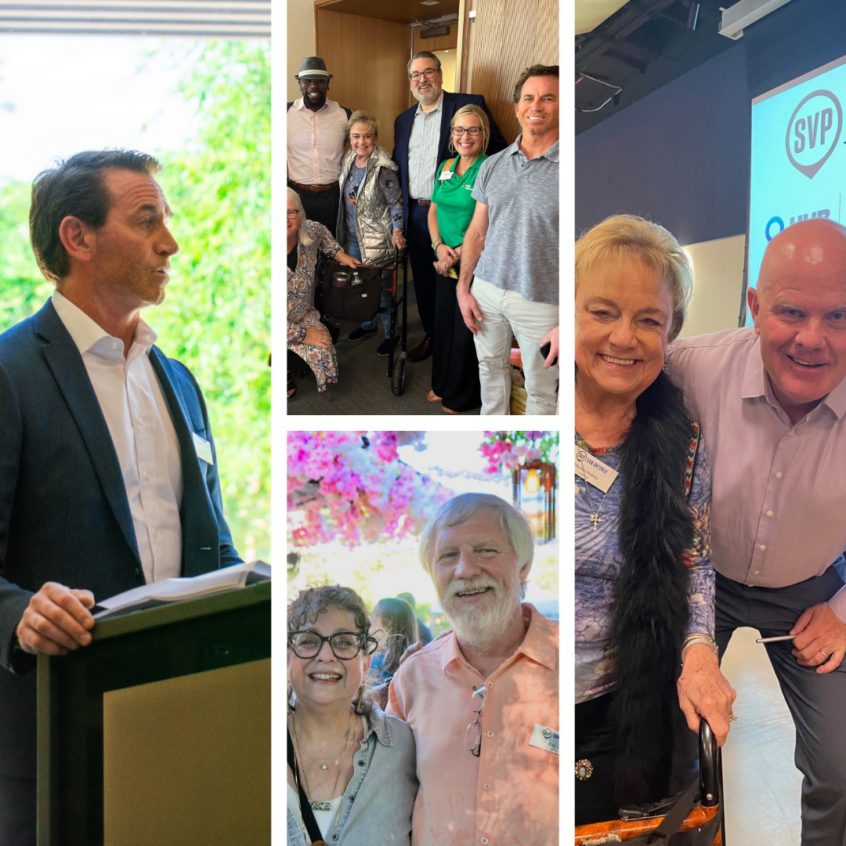by Jennifer Herrera
In 2012, Justin Pawl arrived in San Antonio with a job opportunity with registered investment advisory firm, Covenant Multifamily Offices. Pawl currently serves as SVPSA’s 2024 board chairman, and is also a founding partner, and a wealth management financial advisor with CAPTRUST.
Pawl and two other partners were introduced to the concept of Social Venture Partners (SVP) by a member of the SVP chapter in Austin. He admitted he had never heard of anything like it from a philanthropic standpoint, and was immediately intrigued. Pawl comes from a capital markets background and had worked with venture capital firms before. So the venture capital approach to business being applied to philanthropies was something that was immediately attractive for Pawl.
“I’ve seen how impactful private capital can be when applied appropriately, along with professional guidance to growing private businesses,” Pawl said. “And I thought, what a fantastic thing to do in the philanthropic world.”
Pawl explained how SVPSA’s approach is more calculated in terms of how they fund organizations. He stated that their approach “is not one where we just throw money at problems.” He added that history has shown that “money alone cannot solve some of the most difficult problems that communities are facing.” Pawl went on to say that innovation is required to reframe the problem.
Since launching SVPSA in 2017, Pawl has witnessed the organization evolve as well as the scalability. He added that SVPSA still gives away money, and directly interacts with nonprofit organizations “but we found a way to do it at scale that surpasses the resources that we have within SVP through two programs.”
The two programs Pawl mentioned include Catchafire, a funding collaborative put together by SVP to connect local nonprofits to partners and volunteers around the world to help with increasing staff capacity, and the SVPSA fellowship, a program developed to strengthen nonprofit executive level leaders to round out their skills.
Pawl, who spoke passionately about his involvement with SVPSA, described how the initial strategy behind the organization was to identify nonprofit organizations that were doing something innovative in the community to solve really tough problems and needed help scaling.
The strategy proved to be a learning experience, such as how smaller nonprofit organizations needed more education focused on board governance, marketing, accounting, how to prepare financial statements, et cetera. Through that process, SVPSA’s fellowship program came to be.
“If you talk to the people that have been through our fellows programs, it’s had a dramatic impact on their ability to manage their nonprofit organization,” Pawl said. “And that empowers them. It gives them confidence.”
Pawl is no stranger to volunteer work, he stated that SVPSA wasn’t his first volunteer endeavor
“but it was the first directed effort towards founding or co-founding a nonprofit and putting a lot of energy and time into it.”
He shared that although he had never started a nonprofit organization before, he had started businesses and had “some of the same type of experiences, both physically and emotionally.”
“When it comes to starting a business, it’s very hard to get something off the ground to build momentum behind it, to get support outside of just a couple of co-founders that you have,” Pawl said. “We went through everything that a startup organization goes through in launching Social Venture Partners, and it was thrilling.”
Pawl credits the work Becky Dinnin and SVPSA partners do as a team that has allowed the organization to “push us in directions that we had envisioned when we originally started to heights that we hoped to get to.”
“I feel like there’s just a lot of momentum behind the organization right now. We can measure the impact that we’re having in the community, which is remarkable,” Pawl said.

